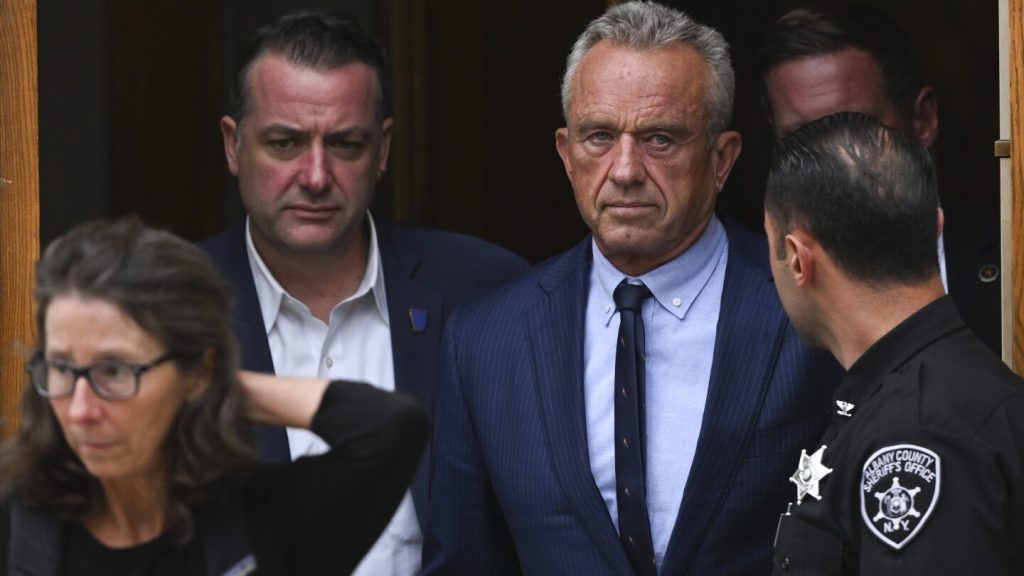A judge ruled that Robert F. Kennedy Jr.’s name should not appear on New York’s ballot as an independent presidential candidate. The judge stated that Kennedy falsely claimed a New York residence on nominating petitions despite living in California. Kennedy plans to appeal the ruling, calling it partisan. If upheld, this decision could impact other states where Kennedy used an address in New York City’s suburbs to gather signatures. Kennedy accused Democrats of showing contempt for democracy by trying to limit voter choices.
In her 34-page decision, Judge Christina Ryba found that the bedroom Kennedy claimed as his residence in New York was a “sham” address used for voter registration purposes. Evidence showed a pattern of borrowing addresses to maintain his voter registration in New York while residing in California with his wife, Cheryl Hines. The ruling was backed by Clear Choice Action, a Democrat-aligned political action committee. Kennedy argued that he has ties to New York, plans to move back, and currently resides in a room in Katonah, north of Manhattan, when not campaigning.
Kennedy’s friend testified that he regularly stayed overnight at his Westchester home from 2014 to 2017 but was not a tenant as claimed by Kennedy. Attorneys highlighted government documents and a social media video that contradicted Kennedy’s claims of residency. The judge found Kennedy’s testimony about not owning furniture in the Katonah room, while his wife and pets remained in California, as evidence that he did not intend to permanently reside there. Kennedy argued that he has been a New York resident since 1964, citing tax payments, a law practice, and various licenses in the state.
Kennedy, a 70-year-old with a famous name and a loyal base, has the potential to perform well as an independent candidate in the 2024 presidential election. Both Democrat and Republican strategists are concerned that his candidacy could impact their chances. Despite facing challenges and lawsuits in several states, Kennedy’s campaign claims to have enough signatures for ballot qualification in most states. Getting knocked off the ballot in New York could lead to legal battles in other states where Kennedy listed the same address. Kennedy plans to continue his appeal to allow voters a choice in the upcoming election.
The ruling against Kennedy in New York brings into question his claims of residency and raises doubts about his eligibility to run for president as an independent candidate. Kennedy’s defense of his ties to New York and intentions to return to the state face challenges from legal proceedings and evidence presented in court. The potential impact of this ruling on Kennedy’s campaign in other states highlights the complexity and scrutiny candidates face in national elections. Despite the setback, Kennedy remains determined to appeal the decision and fight for his place on the ballot, emphasizing the importance of voter choice and challenging the status quo in American politics.


